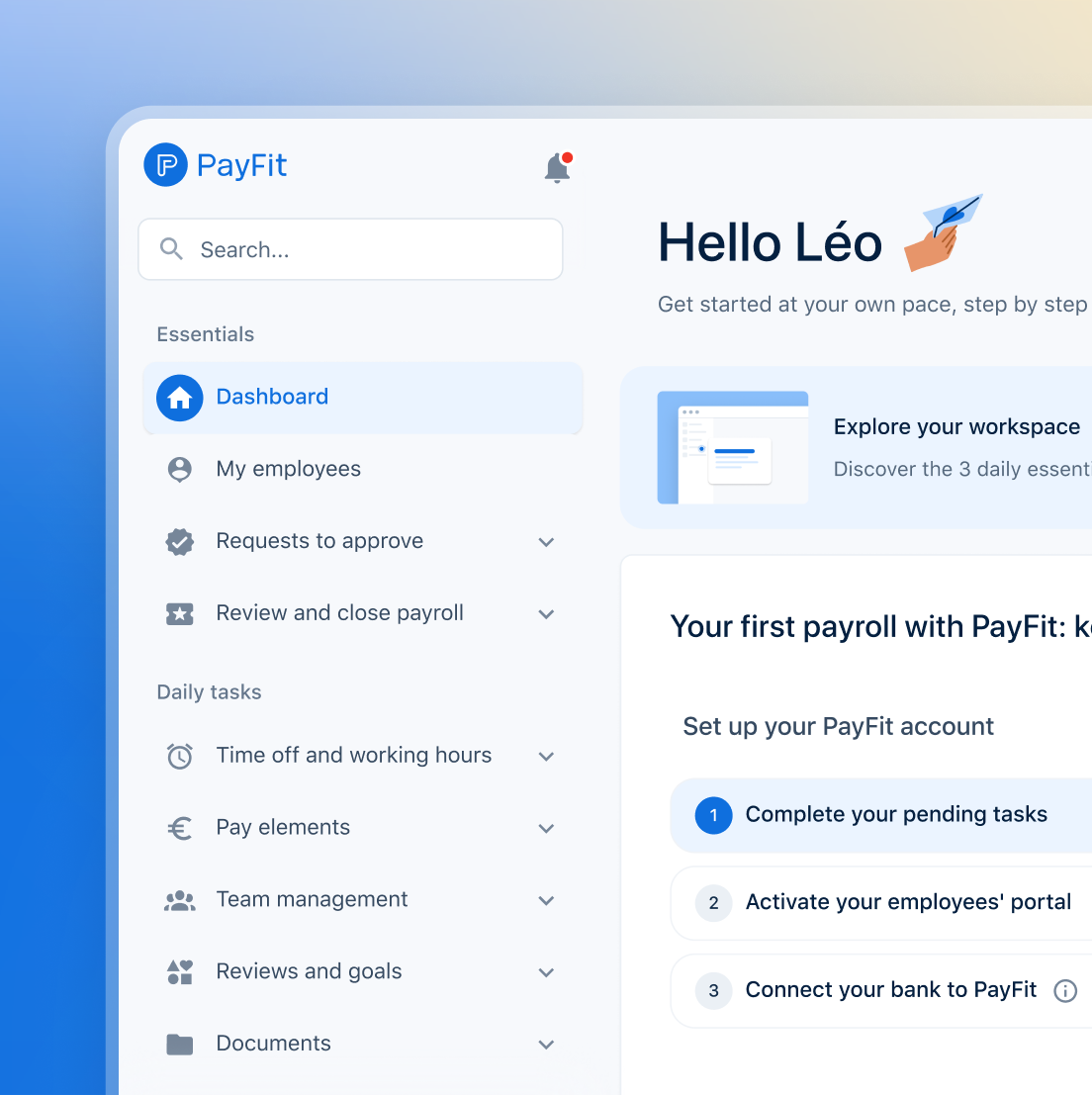✨ Health insurance, now in PayFit - learn more
💷 All the rates & thresholds you need to know for 25/26...right here
✨ The Payroll Journey: Start, Scale & Succeed Globally - learn more
✨ Health insurance, now in PayFit - learn more
💷 All the rates & thresholds you need to know for 25/26...right here
✨ The Payroll Journey: Start, Scale & Succeed Globally - learn more

On March 15th, 2023, Chancellor of the Exchequer Jeremy Hunt unveiled his highly anticipated 2023 Budget.
Much speculation has led up to this event. An ongoing cost of living crisis and a series of strikes across public sectors means the UK isn’t really ‘sitting pretty’ at the moment. There was a lot for the Chancellor to address in his Spring budget statement, including his plans for the economy moving forward.
Among topics of interest for business and the overall public were energy bills and pensions as well as reforms to the benefits and childcare systems. And from the employer’s point of view, there were a number of key announcements. We’ll dive into these briefly to unpack exactly how this budget will likely affect you as an employer.
Here are six ways the 2023 budget impacts employers and their businesses.
The chancellor confirmed that 12 new investment zones will launch across the UK this year.
Like Freeports, these investment zones will be areas where employers can take advantage of tax breaks, such as on employers’ National Insurance (NI). Within these zones, employers will no longer have to pay employers’ NI for certain employees.
This will affect larger regions like Manchester and Liverpool. Employees in these investment zones will be classed under a different NI category, so employers can calculate the correct NI.
There was much discussion in the run-up to March’s budget as to whether there would be changes to the pension tax-free allowance.
Indeed, the annual pension allowance will increase by 50% (in other words, how much employees save before paying tax) - from £40,000 per year to £60,000 per year.
The bigger news, however, concerns the Lifetime Allowance (LTA). The 2023 budget will see this abolished entirely, allowing employees to grow their pensions without limit or tax consequences.
The cap is currently set at £1,073,100 but will no longer apply from April 2023 and will be officially abolished in 2024 when legislation allows.
Another major announcement from the Spring budget came in the form of some substantial childcare reforms.
It’s reported that some parents in England are having to spend up to 80% of their take-home pay on childcare. And currently, eligible employees are only able to claim 30 hours for children aged three-four years old.
As such, the Chancellor is increasing the number of free childcare hours for 38 weeks of the year. The change will be gradual:
To start, parents will be able to access 15 free hours for children aged two-three.
Then, they will get 15 hours for children between nine months and three years old.
Eventually, parents will be able to claim up to the full 30 hours of free childcare for children aged nine months to three years of age.
For employers and employees alike, these measures should be a welcome improvement. Parents could return to work sooner or opt for part-time hours while raising their children. Among other benefits, these new measures should reduce discrimination against women and boost the wider economy.
2026 payroll checklist
In addition to tackling childcare issues, several measures were also announced during the 2023 budget to improve long-term sickness and disability.
Among some of these measures are a new voluntary scheme for disabled people to seek support from the government in getting back into work and a new pilot program called WorkWell which will take a blended approach to employment and health support.
These measures should help improve employment among those with disabilities and long-term health issues.
Hunt’s March budget speech also introduced a new concept regarding apprenticeships: the ‘returnship’.
Targeted at those over 50 keen to return to work or start a new career, this new scheme will offer improved access to training. It will mean workers of any age can upskill flexibly while taking into account previous experience to accelerate training.
As part of this program, older job seekers will be able to access streamlined apprenticeships, sector-based program placements, and skills boot camps, among other initiatives.
The ‘tax gap’’ has been an ongoing issue in England. This is the difference between the tax that should be collected and the actual amount HMRC receives.
To address this, the Chancellor is introducing several measures, including £47.2 million invested in HMRC to help them identify employees actively avoiding paying their taxes. But the fund will also provide support to those struggling to pay their tax debts.
In addition to the above, there are a number of other topics still in play:
Family carers and neonatal leave - The right to these types of unpaid leave is currently still under discussion.
A review of workers’ rights to predictable hours - This is slated to be discussed in the summer of 2023 and could lead to fewer employees being stuck on zero-hour contracts.
Here’s a word from our Payroll Expert, Rebecca Russell, on the Spring budget:
Budgets are always a prime time for payroll legislation changes. But the good news is you don’t have to stay on top of each and every announcement just to maintain compliance. A good quality payroll software can do all this for you.
With so many options to choose from on the marketplace, it can be difficult to identify the right payroll software for your business. It’s worth looking out for those that are HMRC-recognised and backed by real CIPP payroll experts, so you’ll have peace of mind that new rates or threshold changes announced are applied.
At PayFit, these experts are involved in every stage of our development cycle. Which means payroll expertise is baked into every aspect of our product. There’s no better way to keep on top of compliance.


Learn how to register for Payrolling Benefits in Kind (PBiK) & simplify HMRC reporting. Discover 2025/26 updates & prepare for mandatory payrolling in 2027.

We explore the proposal for a £1,600 monthly universal basic income (UBI) trial in England, considering all the pros, cons and payroll implications.

If you pay Class 1 National Insurance, you can qualify for what’s called the Employment Allowance, and a lower Employer NI bill. Find out how here.

The 2024 Autumn Budget has landed. What does the new Labour government have in store for businesses and their employees? We recap the top announcements made.

Read our guide to answer the question ‘what is small employers’ relief’, to find out how you can qualify as a business, and how much you can claim.

In this post, we’ll look at TUPE (Transfer of Undertakings Protection of Employment Rights), how it works and what employers need to know.

See what's new in PayFit
New features to save you time and give you back control. Watch now to see what's possible